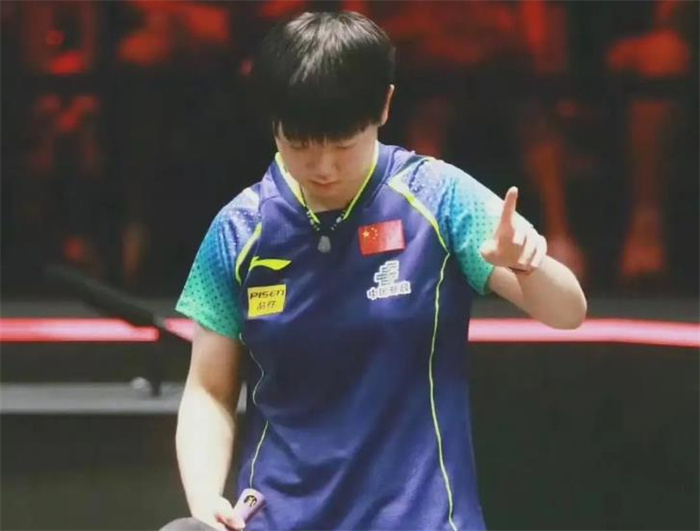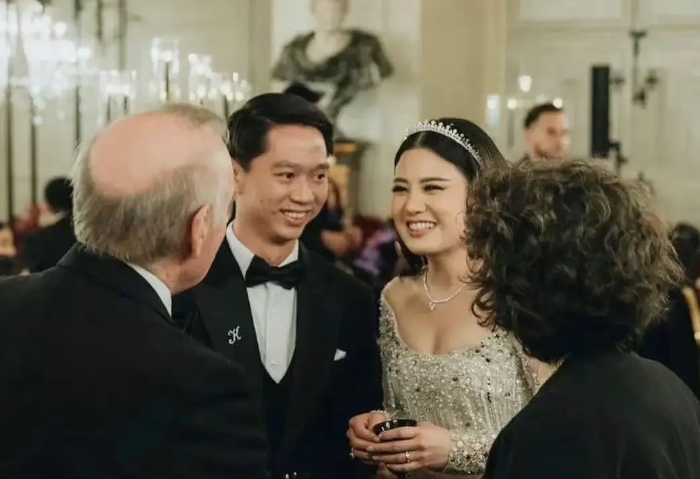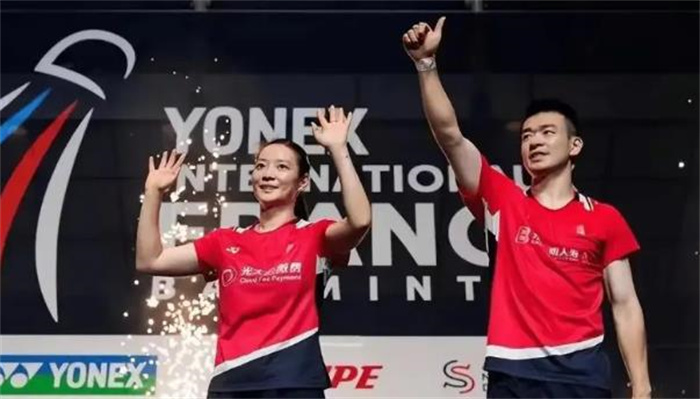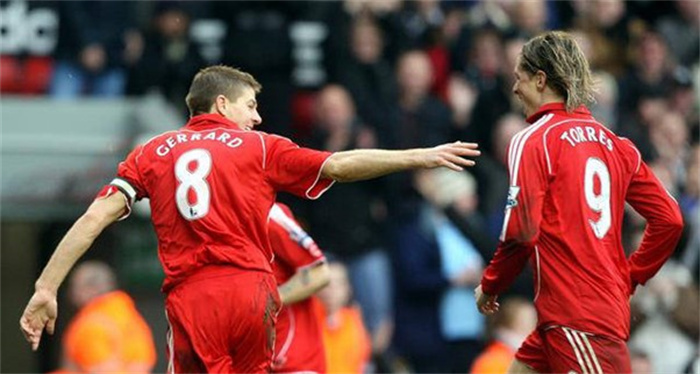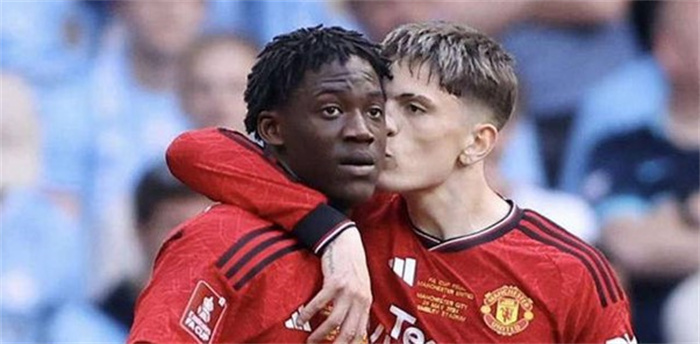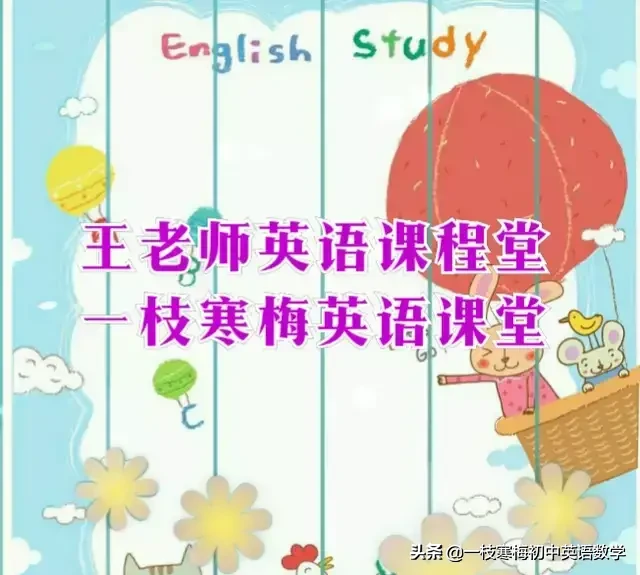
重点句型:
Unit 1 Can play the guitar?
1. —Can you swim?
你会游泳吗?
—No,I can’t.
不,我不会。
2. Can you play the guitar?
你会弹吉他吗?
3. I want to join the art club.
我想参加艺术俱乐部.
4. What club do you want to join?
你想参加什么俱乐部?
5. You are very good at telling stories.
你非常擅长讲故事。
6. Sounds good. But I like to draw,too.
听起来不错。但我也喜欢画画。
7. Then join two clubs—the story telling club and the art club!
那么就请加人两个俱乐部—— 讲故事俱乐部和艺术俱乐部。
8. 一Can Wu Jun speak English?
吴俊会讲英语吗?
一No,he can’t, but he can speak Chinese.
不会,但他会讲汉语。
9. Are you good with old people?
你与老人们相处得融洽吗?
10. Can you play the piano or the violin?
你会弹钢琴还是会拉小提琴?
Unit 2 What time do you go to school?
1.What time do you go to school?
你几点去上学?
2. 一What time do you usually take a shower,Kick?
瑞克,你通常几点钟淋浴?
—I usually take a shower at six forty.
我通常六点四十淋浴。
3. 一When do you go to work?
你什么时候去上班?
一At eleven o’clock, so I’m never late for work.
十一点,我上班从来没有迟到过
4. —What time do they get dressed?
他们几点钟穿上衣服?
一They always get dressed at seven twenty.
他们总是七点二十穿上衣服。
5. What time does your best friend go to school?
你最好的朋友几点去上学?
6. —When do students usually eat dinner?
学生们通常几点钟吃正養?
一They usually eat dinner at a quarter to seven in the evening.
他们通常晚上六点四十五吃正餐。
7. When I get home. I always do my homework first.
我到家后,总是先做家庭作业。
8. In the evening,I either watch TV or play computer games.
晚上,我要么看看电视,要么玩玩游戏。
Unit 3 How do you get to school?
1. —Hey, Dave, How do you get to school?
喂,戴夫,你是如何到校的?
—I walk. How about you, Sally?
我是步行到校的,萨丽,你呢?
—I ride my bike.
我是骑自行车到校的。
2.—I ride it to school every day. How do you get to school?
我每天骑自行车上学,你呢?
一I usually take the bus.
我通常乘公交车上学.
3. How far is it from your home to school?
从你家到学校有多远?
4. 一How long does it take you to get to school?
你到学校要用多长时间?
—About 15 minutes by bike.
骑自行车大约十五分钟。
5. —Well, have a good day at school.
祝你在学校度过愉快的一天。
—You, too.
你也是。
6. —How do you get to school?
你是如何到校的?
—Well, I ride my bike to the subway station. Then I take the subway.
我先骑车去地铁站,然后乘地铁去学校。
7. Do you walk or ride a bike?
你是步行还是骑自行车?
8. For many students, it is easy to get to school.
对于许多学生来讲,上学是挺方便的。
9. There is a very big river between their school and the village.
在他们的学校与村庄之间有一条大河。
10. There is no bridge and the river runs the quickly for boats.
(河上)完全没有桥梁,而且河水湍急,不宜小船摆渡。
Unit 4 Don’t eat in class.
1. Don't eat in class.
在课堂上不准吃东西。
2. Don't arrive late for class, you must be on time.
不准上课迟到,务必守时。
3. Don’t run is the hallways.
不准在走廊内乱跑。
4. Don’t eat in the classroom. You must in the dining hall.
不准在教室里吃东西,务必在餐厅里吃东西。
5. Don’t listen to music-in class.
不准在课堂上听音乐。
6. —Can we listen to music, Cindy?
我们可以听音乐吗?
—We can’t listen to music in the hallways, but we can listen to it outside.
我们不可以在走廊里听音乐,但在外面可以听。
7.—Can we bring music players to school?
我们可以把音乐播放器带到学校吗?
一No,we can't. And we always have to wear the school uniform.
不行,而且我们总是要穿着校服。
8. 一Does he have to wear a uniform at school?
他在学校一定要穿校服吗?
—Yes, he does. /No, he doesn't.
是的,必须要穿校服。/不,不必要穿校服。
9. Get up now and make your bed.
现在起床了,把床铺整理一下。
10. Don’t leave the dirty dishes in the kitchen!
别把脏碗留在厨房里。
Unit 5 Why do you like pandas?
1. —Let's see the pandas first. They're my favorite animals.
咱们先看熊猫吧,我最喜欢熊猫了。
—Why?
为什么?
—Because they’re very cute.
因为它们非常可爱。
2. Why do you want to see them?
你为什么想看它们?
3. He can walk on two legs.
他(指“狗”)会立着行.
4. —Why don’t you like the cat?
你为什么不喜欢这猫?
—Well,because she's kind of boring, she sleeps all day.
因为她有点儿令人乏味,并且整天都在睡觉
5. —Why don't you like tigers?
你为何不喜欢老虎?
—Because they're really scary.
因为它们确实可怕。
6. —Where are lions from?
狮子来自什么地方?
—They're from South Africa.
他们来自南非。
7. But I like tigers a lot.
但我非常喜欢老虎。
8. Our first flag had a white elephant on it.
我们的第一面国旗上就绘着一头白象!
9. People say that “an elephant never forgets. ”
人们说大象从来不会忘记。
10. Elephants can walk for a long time and never get lost.
大象能够长时间行走,而且不迷路。
11. But elephants are in great danger.
但是大象面临巨大的危险。
12. We must save the trees and not buy things made of ivory.
我们必须拯救树木,拒买象牙制品。
Unit 6 I’m watching TV.
1.一 What are they doing?
他们在干什么?
—They’re listening to a CD.
他们在听光碟。
2. That sounds good.
那听起来挺不错的。
3. Not much,I'm just washing my clothes. What about you?
没忙什么,只是在洗衣服.你呢?
4. Do you want to join me for dinner? My parents aren't at home. We can eat out.
你愿意和我一块吃晚饭吗?我爸妈不在家,我们可以下馆子吃饭。
5. —Are you doing your homework.
你在做家庭作业吗?
—Yes, I am/No,I’m not. I'm cleaning my room.
是的/不,我在打扫房间。
6. —Are they using the computer?
他们在使用电脑吗?
—Yes, they are/No, they aren’t. They're exercising.
是的/不,他们在锻炼。
7. Why are Zhu Hui's family watching boat races and making zongzi.
为何朱辉全家看划船比赛并且包粽子呢?
8. So it’s like any other night for Zhu Hui and his host family.
所以对朱辉和他的房东家人来说,今晚和平时的晚上是一样的。
9. But there’s still “no place like home. ”
但是“千好,万好,不如自己的家好。”
10. Zhu Hui misses his family and wishes to have his mom's delicious zongzi.
朱辉非常想家并盼望着能吃到到妈妈包的美味粽子。
Unit 7 It’s raining!
1. Hello,Rick speaking.
喂,我是里克。
2. Hi Rick, It’s Steve.
里克你好,我是史蒂夫。
3. —How’s it going?
近来可好?
—Not bad, thanks.
马马虎虎,谢谢。
4.Sounds like you’re having a good time.
听起来你玩得好开心。
5.Could you just tell him to call me back?
你能否叫他给我回个电话?
6. She is working here and I'm going to summer school.
她在这里上班,而我呢,将要去上博假学习班。
7. 一How's the weather?
天气怎么样?
—It's cloudy. /It's sunny. /It's rainy.
多云/阳光明媚/天正下雨呢。
8.He’s studying at his friend’s home.
他正在朋友家学习呢。
9.I’m having a great time visiting my aunt in Canada.
现在我在加令大看望我姑姑,玩得非常开心。
10.The weather here is cool and cloudy,just right for walking.
这儿的天气凉爽,正好适宜于散步。
11. I'm studying English and I'm learning a lot.
我正在学习英语且收获颇丰。
12. How’s your summer vacation going?
暑假过得怎么样?
Unit 8 Is there a post office near here?
1.—Where are the pay phones?
付费电话在什么地方?
—They’re between the post office and the library.
在邮局与图书馆之间。
2.How can I help you?
需要我帮忙吗?
3.I’m new in town.
我新来此镇。
4.To get there, I usually walk out and turn right on Bridge Road.
赛去那儿的话,我通常步行外出,在大桥路向右拐。
5.The best things in life are free!
生活中最美好的东西是免费的呀!
6. It is very quiet and I enjoy reading there.
图书馆很安静,我喜欢在那儿看书。
7.Turn right at the first crossing and the resturant on your left.
在第一个十字路口向右拐,饭馆就在你左边。
8.Thank you very much.
非常感谢。
9.You’re welcome.
不客气。
Unit 9 What does he look like?
1.I may be a little late.
我或许要晚一会儿。
2. He isn’t tall or short.
他个头既不髙也不矮。
3.—What does he look like?
他长什么样?
—He's really tall.
他长得确实高。
4—What does she look like?
她长什么样?
—She has long straight hair.
她留着长直发。
5.—What do they look like?
他们长什么样?
—They’re of medium build.
他们中等身材。
6.—Do they have straight or curly hair?
他们留有直发还是卷发?
—They have curly hair.
他们留有卷发。
7. Is he tall or short?
他个头高还是矮呢?
8.He isn’t tall or short He’s of medium height.
他既不髙也不矮,中等个头。
9.What does your favorite teacher look like?
你最喜欢的老师长什么样?
10. And he's really handsome.
而且他的确帅气。
11.She has blonde hair.
她长着一头金发。
12.Many people don't always see things the same way so they may describe the same people differently.
人们并非总是以同样的方式看待事物,所以他们会将同一个人描述得不一样。
Unit 10 I’d like some noodles.
1. What would you like?
您需要什么?
2. I'm not sure yet. Are there any vegetables in the beef noodles?
牛肉面里有蔬菜吗?
3. Yes, there are some tomatoes.
有,里面有西红柿。
4. OK, I’d like the beef noodles, please.
好的,我就吃牛肉面了。
5. I like dumplings、fish and orange juice.
我喜欢吃饺子、鱼及喝橙汁。
6. I don't like onions,green tea or porridge.
我不喜欢吃洋葱,也不喜欢喝绿茶和粥。
7. What kind of noodles would you like?
您要什么面?
8. I’d like beef noodles, please.
就要牛肉面吧。
9. What size would you like?
您要什么碗的面?
10. I’d like a large bowl, please.
就来大碗的吧。
Unit 11 How was your school trip?
1.—Did you see any cows?
你见到奶牛了吗
一Yes, I did. I saw quite a lot.
我见到了而且见到了很多很多
2.—Did Carol take any photos?
罗尔拍照片了吗?
—Yes, she did.
是的,她拍了。
3.—Hi, Eric, How was your trip last week?
你好,Eric,上周旅游怎么样?
一It was excellent. I visited my grandparents in the countryside.
精彩极了,我还去乡下看望了爷爷奶奶。
4.We had so much fun!
我们玩得非常开心!
5.I took a lot of great photos, too.
我也拍了好多精彩照片。
6. All in all, it was an exciting day.
总之,这是令人兴奋的一天。
7. I’m not interested in that.
我对此并不感兴趣。
Unit 12 What did you do last weekend?
1.—What did you do last weekend? Lucy?
Lucy,你上周末做了什么?
—Well, on Saturday, I played badminton.
噢.周六我打羽毛球了。
2.—Hi,Lisa, How is your weekend?
你好,Lisa,周末过得怎么样?
—Great, thanks.
好极了,谢谢。
3.I worked as a guide at the Natural History Museum.
我在自然历史博物馆当了一名导游。
4.They have a beautiful house with over 200 kinds of butterflies!
它们(指博物馆)有一个漂亮的房子里有200多种蝴蝶。
5.—Did you have a good weekend?
你周末过得愉快吗
—Yeah, it was good, but I'm kind of tired now, I stayed up late to watch the soccer game.
愉快,但我现在有点累,我熬夜看足球赛了。
6.Where did she go last weekend?
她上周六去了什么地方?
7. She went to a farm.
她去了 一家农场。
8.—When did he lose them?
他是什么吋候丢的钥匙?
—I heard it was yesterday.
我听说是咋天。
9.As a special gift, our parents took us to India.
作为一份特殊的礼物 我爸妈带肴我们去了印。
10. Well, son,that’s why it's important to learn a second language.
所以嘛,儿子,这就是为什么学习外语的重要性啦。
11.There we put up tents and made a fire to keep us warm and cook food on。
在那里我们架起帐蓬,生火取暖并做饭。
重点语法:
一. 情态动词can的用法
can 动词原形,它不随主语的人称和数而变化。
1. 含有can的肯定句:主语 can 谓语动词的原形 其他。
2. 含有can的否定句:主语 can't 动词的原形 其他。
3. 变一般疑问句时,把can提前:Can 主语 动词原形 其他? 肯定回答:Yes,主语 can。否定回答:No,主语 can't.
4. 含有can的特殊疑问句:特殊疑问词 can 主语 动词原形 其他?
I can speak English.→I can't speak English.→Can you speak English? →What can you speak?
二. what time和when引导的特殊疑问句
1. 询问钟点时用what time,询问日期、月份、年份时用when。
2. What's the time?=What time is it?现在几点了?
3. 时刻表达法:顺读法和逆读法。
顺读法:“钟点 分钟”直接读数字。
如:7: 05 seven five;8:16 eight sixteen
逆读法:借助介词past或to表示,要先说分再说钟点。
a. 当分钟不超过30分钟时(包括30分钟),即或=30,用past表示。其结构为:“分钟 past 整点” 意为“几点过几分”。
如:1:25 twenty-five past one
b. 当超过30分钟时,即30,用to表示。其结构为:“所差分钟(即60—所 过分钟数) to 下一个整点”,to译成“差”,差几分钟到几点。
如:4:38 twenty-two to five
c. 当分钟为30分钟用half表示,当分钟为15分钟用a quarter。
三. how引导的特殊疑问句
1. how 引导的特殊疑问句提问交通方式,其答语分三种情况:
a. take a/an/the 交通工具(单数)
b. by 交通工具(单数)
c. on/in 限定词 交通工具
---How do you go to school every day?
---I take a bus to go to school every day./I go to school by bus every day./I go to school on the bus every day.
2. how far 用来提问距离,多远,其答语分为两种:
(1)用长度单位表示:It is five kilometers.
(2)用时间表示:It’s twenty minutes’walk.
3. how long 用来提问时间,意为多久回答常用“for 段时”。
----How long have you learnt English?
----For 3 years.
4. how soon 用来提问做完某事还需要多长时间, 用于将来时态, 常用“in 时间段”来回答。
----How soon will you arrive in Beijing? ----In 3 hours.
四. 祈使句
祈使句一般表示请求、命令、劝说、号召、警告等。一般以动词原形开头,句末可以用感叹号或句号。
1. 肯定的祈使句:
(1) 实义动词原形 其他 :Please look at that boy.
(2) be动词原形 形容词 其他:Be quiet, please.
2. 否定的祈使句:
(1) Don’t 实义动词 原形 Don't stand there.
(2) Don’t be 形容词 其他 Don't be so noisy.
(4) No n./V-ing
No photos. 不许照相。
No talking. 不许谈话。
五. 现在进行时
现在进行时指当前时间正在发生的动作。常与now,at this moment,listen,look等词连用。
1. 现在进行时的基本结构
肯定式:am/is/are doing(现在分词)
否定式:am/is/are not doing(现在分词)
一般疑问式:Am/Is/Are 主语 doing(现在分词) 其他
特殊疑问式:特殊疑问词 一般疑问式
They’re having a meeting now. 他们现在正在开会。
They aren't having a meeting now. 他们现在没有在开会。
Are they having a meeting now? 他们现在正在开会吗?
What are they doing now? 他们现在正在做什么?
2. 现在进行时的基本用法
(1)表示此时此刻正在发生的事情。常与now,at the moment,look,listen等词连用。
The little boy is watching TV now. 这个小男孩现在正在看电视。
Listen!She is playing the guitar in the next room. 听!她正在隔壁房间弹吉他。
(2)表示现阶段一直在进行着或是重复发生着的动作,不强调此时此刻正在做。常与表示时间段的时间状语连用。
I am studying computer this term. 这个学期我一直在学习计算机。
(3)表示说话人褒义或贬义的情感色彩,如赞许、批评、喜欢、厌恶等。此时常与alway、often等频度副词连用。
He is always thinking of others , not of himself. 他总是为他人着想,而不为自己。(表示赞许)
One of my roommates is often leaving things about. 我的一个室友经常乱扔东西。(表示不满)
(4)表示在近期按计划或安排要发生的动作。(现在进行时表示一般将来的含义。)
① 瞬时动词的进行时在任何情况下都表示将来含义。这些动词包括go , come , leave,arrive , return等。
I am leaving.
我将要离开了。
I am leaving tomorrow.
我将会明天离开。
② 持续动词的进行时,只有在有将来时间状语或将来语境的情况下才可以表示将来含义。
An American professor is giving a lecture this afternoon.
今天下午一位美国教授将要作报告。(将来含义)
An American professor is giving a lecture.
一个美国教授正在作报告。(进行含义)
3. 现在分词(doing)的变化规则
(1)一般在情况下,在动词词尾加-ing。
go——going
play——playing
know——knowing
(2)以不发音的字母e结尾动词,先去e再加-ing。
make——making
arrive——arriving
come——coming
(3)以重读闭音节结尾,且动词词尾只有一个辅音字母时,先双写这个辅音字母,再加-ing。
run——running
stop——stopping
swim——swimming
run——running
put——putting
sit——sitting
begin——beginning
plan——planning
cut——cutting
get——getting
shop——shopping
chat——chatting
regret——regretting
dig——digging
(4)以-ie结尾,先将-ie改成y,再加-ing。
tie——tying
die——dying
lie——lying
六. There be结构
1. There be句型主要用以表达“某处有某人(某物),强调存在”其基本结构为“There be+某物(某人)+某地”,有时为了强调地点,也可把地点状语放在句首。
There is a book on the desk.
On the desk there is a book.
(1)肯定句:“There be 主语(某人/某物) 介词短语”
There are three people in my family. 我家有三口人。
There is a pen and two books on the desk. 书桌上有一支钢笔和两本书。
(2)否定式:“There be not 主语 介词短语”
There isn’t a boy in the room.房间里没有一个男孩。
There aren’t any books on the desk.书桌上没有书。
注意:“There be句型”的否定式的构成和含有be动词的其他句型一样,在be后加not或no即可。
注意not和no的不同:not是副词,no为形容词,所以not a/an/any n,相当于no n。
There aren’t any pictures on the wall.
=There are no pictures on the wall.
There isn’t a bike behind the tree.
=There is no bike behind the tree.
(3)疑问式:Be there 主语 介词短语?”
肯定回答是:“Yes, there be.”否定回答是:“No, there be与not的缩写形式”。
—Is there a lamp in your bedroom?在你的卧室里有台灯吗?
—Yes, there is.是的,有。
—Are there any clock in the living room?客厅里有钟吗?
—No, there aren’t.不,没有。
(4)特殊疑问句:一般有两种句型结构
How many 复数名词 are/were there 介词短语?
There’re many children in the park.
How many children are there in the park?
How much 不可数名词 is/was there 介词短语?
There was little rain around the year.
How much rain was there around the year?
2. have表示“某人拥有某人或某物,强调拥有和所属关系”。
The man has two cars.
3. There be句型中的就近原则,即be和距其最近的主语保持一致。
There are some pens and a book on the floor. =There is a book and some pears on the floor.
七. 选择疑问句
选择疑问句是指说话人提出两种或以上的情况,让对方选择是哪一种,两个选择部分用or连接。选择疑问句不用yes或no来回答,直接在两个选择里选一个回答。
---Is she tall or short? ---She is tall.
---Can you play the piano or play the guitar? ---I can play the piano
八. 名词
1. 名词单数变复数规则
在英语里面,名词分可数名词(countable noun)和不可数名词(uncountable noun)。不可数名词没有单复数之分,用时只当单数词用;可数名词有单复数之分,一个的前面要用a或an,eg: a pencil, a basketball, a dictionary, an egg, an ID card,而复数即两个或两个以上的要作相应的变化,情况如下:
(1)一般的词在单数词后直接 “s”
book→books,pen→pens,car→cars,map→maps,cartoon→cartoons
(2)以s,x,sh,ch结尾的词 “es”
box→boxes,watch→watches
(3)以辅音字母 y结尾的名词去掉“y”,改成“i”,再加“es”
family→families,comedy→comedies
(4)以f或fe结尾的词,先去掉f或fe,改成“v”再加es
knife→knives,wife→wives,handkerchief→handkerchieves
(5) 特殊词,特殊变化,需单独记:
child→children,man→men,foot→feet,woman→women
tooth→teeth,sheep→sheep,deer→deer
2. 既是可数名词又是不可数名词的单词
chicken当“鸡肉”讲时是不可数,当“小鸡”讲时可数;
room当“空间”讲时不可数,当“房间”讲时可数;
fish当食物用“鱼、鱼肉”讲时不可数,当“鱼的种类”讲时可数;
hair泛指“毛发”时不可数,当“一根或几根毛发”讲时可数;
sound意思是“一般性的声音”时,不可数,指“一次发出的声音”时可数;
paper当“纸”讲时不可数,当“试卷”、“论文”、“证件”讲时可数;
time当“时间”讲时不可数,当“时代、倍数、次数”讲时可数;
exercise泛指“锻炼”时不可数,当“练习、做操”讲时可数
九. 一般过去时
一般过去时表示在过去某个时间所发生的动作或所处的状态(与现在无关) 。常与yesterday, last week, in 1989, just now, a moment ago, the other day等过去具体时间状语连用。
He was here just now.
他刚才还在这里。
What did you do yesterday?
你昨天做了什么事?
一般过去时基本结构
1. 肯定句形式:主语 动词过去式 其他
I was an English teacher one year ago.
一年前我是一名英语老师。
I bought a yellow dress yesterday afternoon.
昨天下午我买了一条黄裙子。
2. 否定句形式:①was/were not; ②在行为动词前加didn't,同时还原行为动词
I wasn't an English teacher one year ago.
一年前我不是一名英语老师。
I didn't buy a yellow dress yesterday afternoon.
昨天下午我没买一条黄裙子。
3. 一般疑问句:①was/were提到句首; ②Did 主语 动词原形 其他?
Were you an English teacher one year ago?
一年前你是一名英语老师吗?
Did you buy a yellow dress yesterday afternoon?
昨天下午你买了一条黄裙子吗?
4. 特殊疑问句:特殊疑问词 一般疑问句
What were you one year ago?
一年前你是做什么的?

 十大足球直播推荐
十大足球直播推荐

